Businesses do not rely solely on the advantage of cheap labor.
On the morning of June 6, the Ministry of Industry and Trade coordinated with the Vietnam Productivity Institute (VNPI) to organize a Workshop on Sharing Experiences and Results of Applying the Overall Model to Improve Productivity and Quality in Enterprises.
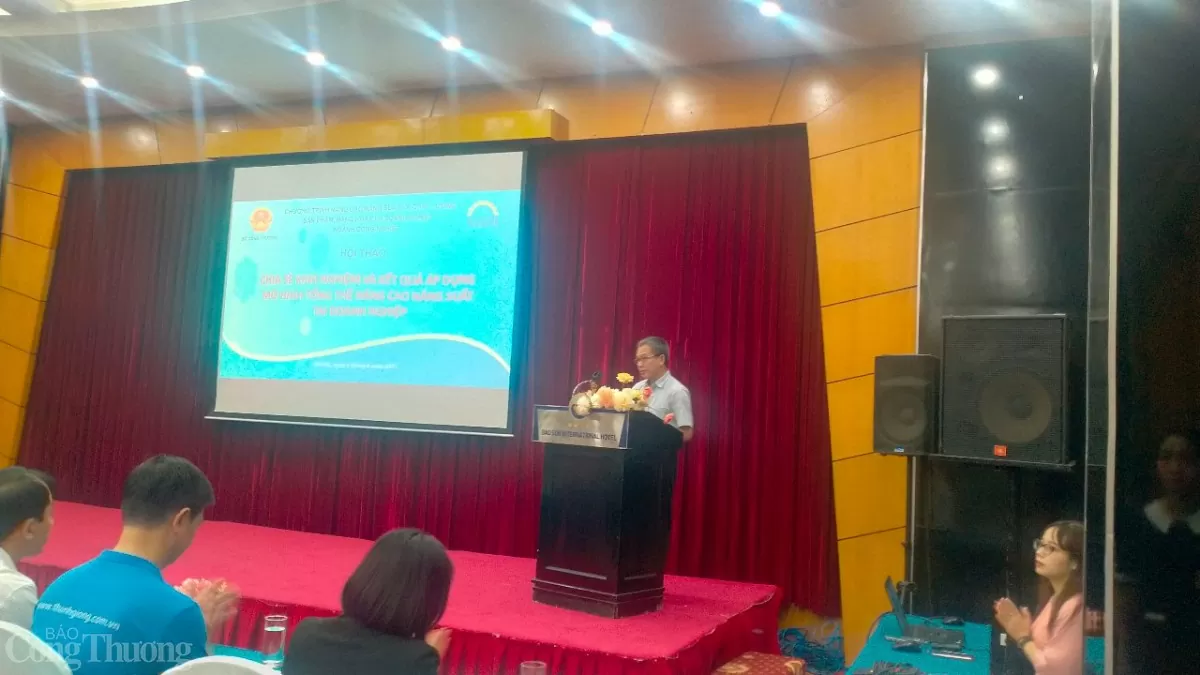 |
| Mr. Nguyen Tung Lam - Director of Vietnam Productivity Institute - spoke at the workshop. Photo: NH |
Speaking at the workshop, Mr. Nguyen Tung Lam - Director of the Vietnam Productivity Institute - said: In the context of the world economy shifting rapidly towards digitalization, greening and globalization of supply chains, Vietnamese enterprises in general and enterprises in the industry and trade sector in particular are facing many fierce competitive pressures.
“To stand firm and develop sustainably, businesses cannot rely solely on the advantages of cheap labor or natural resources, but need to shift to development based on productivity, quality and innovation,” informed Mr. Nguyen Tung Lam.
In fact, in recent years, the Ministry of Industry and Trade has coordinated with the Vietnam Productivity Institute to implement many programs to support businesses in the industrial sector, especially building and perfecting the Total Productivity Improvement Model - abbreviated as TPI (Total Productivity Improvement). This is considered a strategic tool to help businesses improve comprehensively and sustainably.
According to Mr. Nguyen Tung Lam, instead of applying discrete productivity improvement tools such as: ISO quality management system, Kaizen, Lean, 5S... TPI is an integrated system of synchronous productivity improvement from strategy to action, from leadership to each employee.
This model provides a comprehensive, systematic and flexible approach, aiming at sustainable productivity improvement, by synchronously affecting strategy, governance, technology, people and production processes.
For enterprises in the Industry and Trade sector - where most industrial production activities are concentrated, requiring high quality standards, rapid technological innovation and increasingly strict customer satisfaction. Accordingly, Mr. Nguyen Tung Lam believes that implementing the TPI model is a strategic solution, helping enterprises increase internal productivity, improve operational efficiency and gradually enhance competitiveness in domestic and international markets.
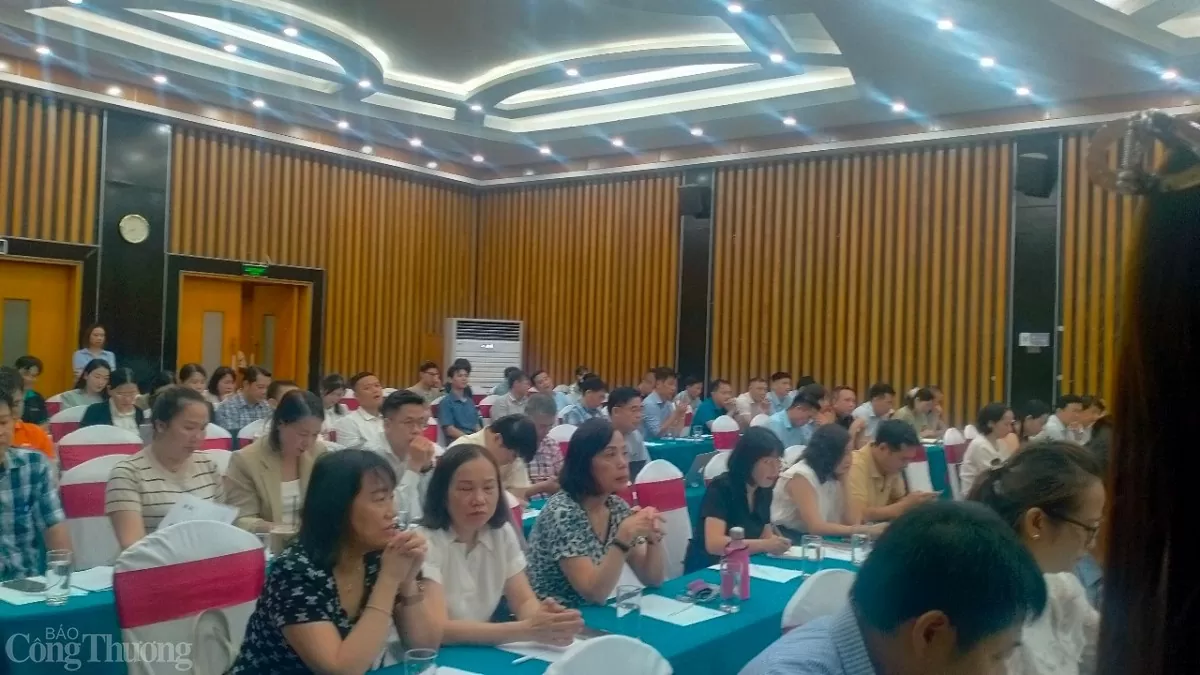 |
| The workshop on Sharing experiences and results of applying the overall model to improve productivity and quality in enterprises took place on the morning of May 6. Photo: NH |
TPI will support the goal of private economic development
According to Mr. Nguyen Tung Lam, the Party and State's attention to the private economic sector and small and medium enterprises is increasingly evident. Recently, the Politburo issued Resolution No. 68-NQ/TW on private economic development, identifying the private economic sector as one of the important driving forces of the economy by 2030. At the same time, the Resolution also sets a target of having at least 3 million enterprises operating in the economy by 2045, contributing over 60% of GDP.
To realize this goal, many support policies have been implemented. Resolution 198/2025/QH15 of the National Assembly stipulates special mechanisms and policies for private economic development, including supporting enterprises in the private economic sector to implement green and circular projects and apply the environmental, social and governance (ESG) framework.
In that context, the TPI model is not only a technical tool, but also a modern business development mindset, focusing on innovation, people-driven and customer value-driven.
In particular, according to Mr. Nguyen Tung Lam, the implementation of the TPI model will help businesses effectively utilize state support policies, improve productivity, product quality and competitiveness, contributing to the successful implementation of private economic development goals set by the Party and State.
Currently, the TPI model has been deployed in 21 enterprises in the following industries: Textile, plastic, mechanical, chemical, steel, footwear, energy and electronics in the period of 2018-2021, and has clearly demonstrated the effectiveness and feasibility of the model. Specifically, applying TPI has helped increase labor productivity by 15 to 30%, reduce costs, increase profits, make customers more satisfied and especially the innovative thinking has spread to every department and every person in the organization.
Phase 2 of the project, with the completion of the model and application at 6 enterprises in the Industry and Trade sector, continues to consolidate the superiority and suitability of the overall productivity and quality improvement model for enterprises in the Industry and Trade sector in particular and enterprises in general.
| Within the framework of the workshop, typical enterprises will share practical experiences in implementing the TPI model, from approach, implementation organization to results achieved. |
Source: https://congthuong.vn/tpi-cong-cu-chien-luoc-giup-doanh-nghiep-cai-tien-toan-dien-391068.html








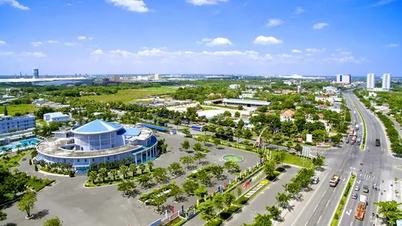



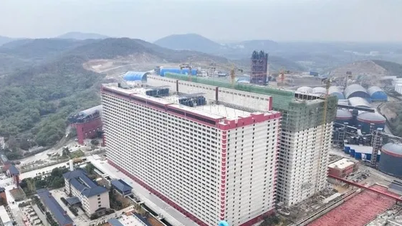

























































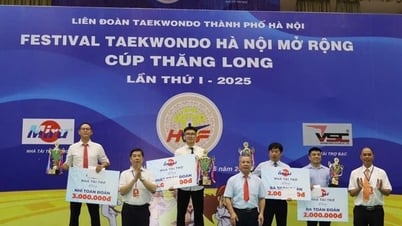


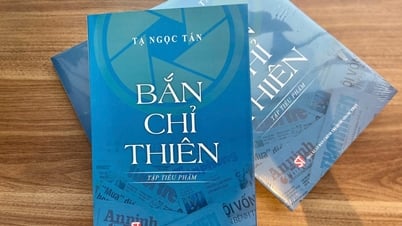
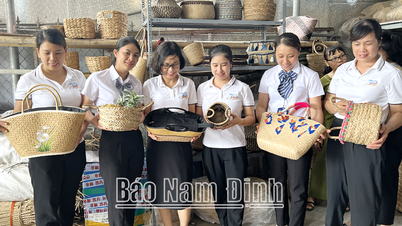









![[OCOP REVIEW] Tu Duyen Syrup - The essence of herbs from the mountains and forests of Nhu Thanh](https://vphoto.vietnam.vn/thumb/402x226/vietnam/resource/IMAGE/2025/6/5/58ca32fce4ec44039e444fbfae7e75ec)



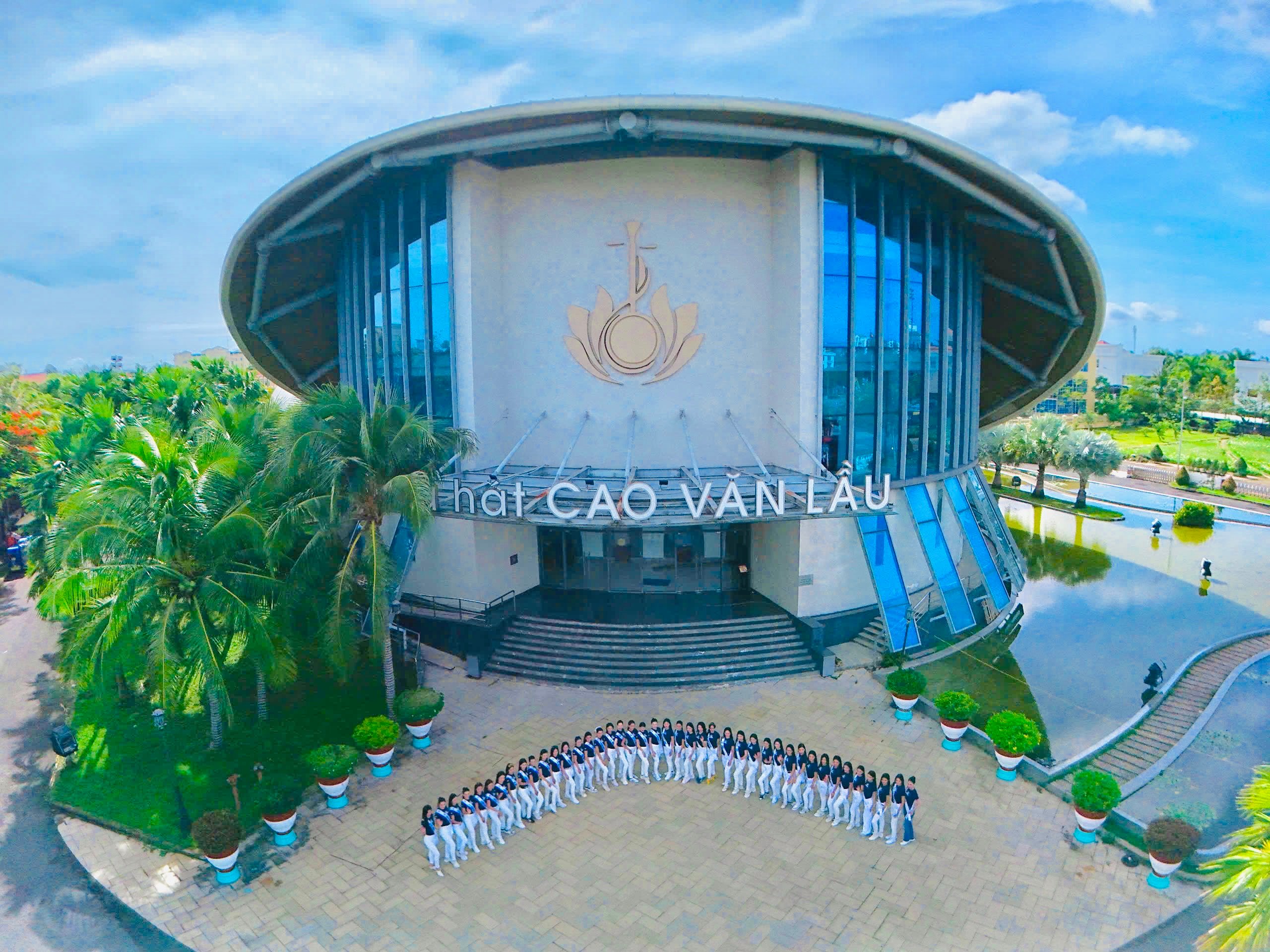



Comment (0)